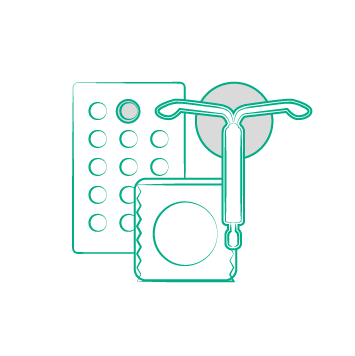
Following five years of implementation since January 2015, FIGO’s Postpartum Intrauterine Device (PPIUD) Initiative is now wrapping up project activities and fully handing over responsibility for postpartum family planning (PPFP) services in the country to our partner, the Obstetrical and Gynecological Society of Bangladesh (OGSB). The project ran in six centres, with three outside of the capital and three within Dhaka.
“Choosing a method for myself, I needed a long-acting reversible method because I want to have another child in 5 or 6 years, I did not hesitate to choose PPIUD. It is also non-hormonal so I am able to breastfeed my baby, which is important to me.”
Najbin Akter, PPFP Counsellor at Khulna Medical College Hospital and PPIUD user
- Read more about Postpartum IUD Project: Bangladesh
- Log in to post comments
We are deeply saddened to receive news of the death of Winnie Naisianoi Shena-Mureithi, CEO of the Kenya Obstetrical and Gynaecological Society (KOGS).
Winnie was a wonderful and passionate leader, dedicated to serving women and supporting life through her work as a midwife and with KOGS. She successfully led teams in Kenya in their implementation of FIGO’s Advocating Safe Abortion Project (ASAP) and as Deputy Country Coordinator for the Post-partum Intrauterine Device (PPIUD) initiative.
- Read more about Winnie Naisianoi Shena-Mureithi
- Log in to post comments
On 27th August 2020, we held a webinar on women’s sexual and reproductive health and rights (SRHR) during COVID-19. Below is part three of a summary of the points raised and topics discussed during the webinar, written by our Human Rights, Refugees and Violence Against Women Committee.
The Postpartum Intrauterine Device Initiative is part of our ongoing commitment to ensure every woman and girl has equal access to quality Family Planning.
We have developed this video to showcase some of the work the Project has undertaken. It includes interviews from some of the Professionals working on or alongside the project, facts and figures on the work of the project, and testimonials from individuals who have seen first-hand the positive effect the PPIUD Initiative has had on women in their countries.
- Read more about The PPIUD Initiative - Learn More
- Log in to post comments
Statistically COVID-19 has low mortality rates for youths and adolescents. What the Coronavirus is instead putting young girls at risk of, is a lack of Family Planning services, which could increase mortality rates as a result. The World Health Organisation states that, for girls aged 15-19, complications from pregnancy and childbirth are the leading cause of death globally.
- Read more about Youth and Family Planning during COVID-19
- Log in to post comments
(Reviewed and approved by the FIGO Executive Board, September 2005, and adopted by the FIGO General Assembly on 7 November 2006)
Each year ‘World Population Day’ seeks to focus attention and urgency on population issues, including the importance of family planning, maternal health and human rights. The ability to decide if, and when, to have children allows a woman to contribute to society fully and take better care of her family. Yet despite this recognition, millions of women globally do not have access to safe and effective family planning, and its sustained benefits.
- Read more about World Population Day
- Log in to post comments
Strengthening sexual and reproductive health services has far reaching benefits in terms of the overall health of a nation.
Contraceptive and Family Planning services and supplies are CORE components of essential health services and access to these services is a fundamental human right.